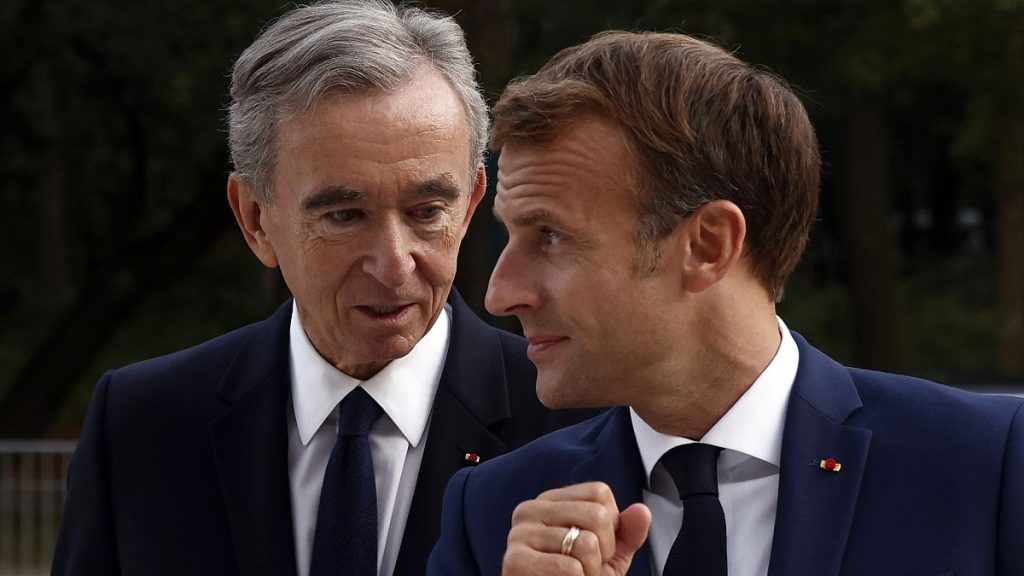Bernard Arnault, the founder and CEO of LVMH, has recently been elected to the prestigious Académie des Sciences Morales et Politiques in France, marking a significant achievement for the country’s wealthiest individual. The Académie is one of five esteemed learned societies under the Institut de France and comprises 50 members divided into six specialized sections: philosophy; morals and sociology; law; political economics, statistics and finance; history and geography; and a general selection. Arnault, elected by 27 votes, fills the position formerly held by Denis Kessler, the late CEO of SCOR SE. Despite winning the election, Arnault faced opposition from seven voters, which included five abstentions and two outright “no” votes. This accolade is weighty; the Académie operates under the president’s protection and plays a crucial role in shaping French policy, particularly in the fields of literature, science, and the arts.
Arnault’s election comes during a turbulent period for him personally, as he has been embroiled in a legal investigation surrounding Bernard Squarcini, a former head of France’s intelligence service. Squarcini faces serious allegations of corruption, illegal surveillance, and influence peddling, with accusations suggesting that he leveraged his position to benefit LVMH during his time as a private security contractor. Arnault has denied any involvement or knowledge of such activities. This investigation follows LVMH’s previous settlement of €10 million in 2021 related to Squarcini’s alleged misconduct. Despite these challenges, Arnault’s recognition by the Académie is notable not only for its honor but also for the power it affords him within French policymaking circles.
As the richest man in France, Arnault has consistently been a focal point of media attention, particularly for his immense success in growing LVMH into a €300 billion conglomerate since its inception in 1987. His position as a billionaire and business leader places him among influential figures such as Michel Pébereau and Nobel Prize-winner Jean Tirole within the Académie’s political economics, statistics, and finance section. His membership signifies a commitment to the organization’s mission of fostering improvements in literature, science, and the arts while also having the potential to sway French economic policy thanks to the extensive network and expertise he brings to the table.
Amidst this new role, there are ongoing discussions regarding the future leadership of LVMH, particularly focusing on Arnault’s eventual succession. The billionaire has five children, three of whom are seen as potential successors. Alexandre Arnault, his 32-year-old third child, has recently garnered attention following his appointment as deputy chief executive of Moët Hennessy, suggesting he may play a crucial role in the company’s future. This strategic positioning could facilitate a smoother transition of power as Arnault prepares for retirement, although details on a definitive succession plan remain vague.
The dynamic within LVMH has drawn comparisons to dramatic family narratives, echoing themes from popular culture, such as the series “Succession.” Questions linger about how Arnault’s decision-making regarding succession will impact the company, especially with notable ambitions among his children. While the financial prowess and business acumen of the next generation remain uncertain, Arnault’s trend of closely commencing collaborations with family members hints at a cautious yet hopeful transition strategy that may leverage their strengths in the luxury goods market.
In conclusion, Arnault’s election to the Académie des Sciences Morales et Politiques is a pivotal moment both for him personally and for the broader context of French society. His newfound role connects him with the intellectual elite of France and allows him to wield a certain level of influence in policy discussions. As he navigates legal troubles and contemplates LVMH’s future leadership, the interplay between his personal legacy, corporate governance, and familial dynamics will become increasingly significant in shaping the company’s trajectory and impact in the global luxury marketplace. Through this lens, Arnault’s career embodies the complexities of wealth, power, and responsibility in contemporary society.














